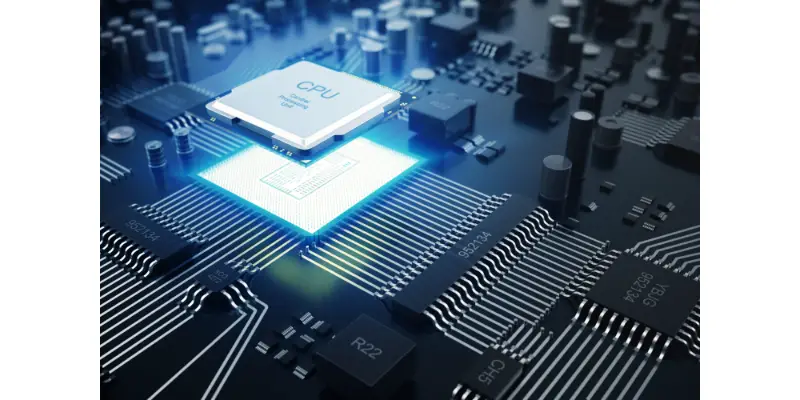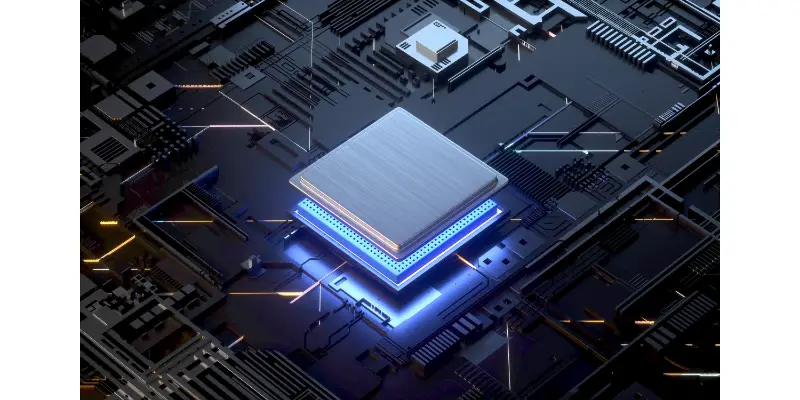Disclaimer: This post may contain affiliate links, meaning we get a small commission if you make a purchase through our links, at no cost to you. For more information, please visit our Disclaimer Page.
When it comes to laptops and desktops, there are a lot of similarities. However, to answer the question:
Laptop and desktop CPUs are not the same. While the processors of both these computers may come from the same company, the fact that laptop CPUs are smaller and more compact than the ones you find on desktops mean that they are made to be slower than their desktop counterparts.
Table of Contents
Are laptop and desktop CPUs the same?
If you know anything about your computers, it would be that the brain of the computer is its central processing unit (CPU) or simply its processor. This holds true for both laptops and desktops. But, when you look at a laptop and compare it to a desktop, you would notice that the laptop is much smaller and more compact than a desktop. As such, are the CPUs in a laptop the same as in a desktop?
The CPU, which can also be called the processor, is the brain of the computer as this is what allows the computer to be able to make complex decisions and perform complicated processes. Naturally, the more powerful the CPU is, the more the computer is able to perform multiple complex decisions.
In that respect, both the laptop and the desktop are computers that require processors to execute their numerous tasks. In that way, they are not different because both of these computers require a CPU to function and to accomplish some of the more complicated functions that they are capable of performing.
Apart from the fact that laptops are smaller and more compact than desktop computers, each of these computers require identical components, all of which are driven by the CPU.
However, as much as we would like to think that laptops and desktops are different from one another because of how they are made for different purposes, you might think that they have the same CPUs in the sense that you can actually interchange the processor of a laptop with that of a desktop’s. So, are laptop and desktop CPUs the same?
The truth is that, since most laptops and desktops use CPUs from the same company or manufacturer, they are built to be distinct from one another precisely because laptops and desktops are devices that are vastly different in terms of design and form factor.
Of course, if laptop and desktop CPUs are designed to be the same, there is no need for desktop computers to be as enormous and as heavy as they are in compared to laptops, which remain quite small even when equipped with the most powerful laptop processors available.
They are just quite different from one another, despite the fact that the CPUs in both the laptop and the desktop perform the identical functions for the computers that they service.
What are the differences between laptop and desktop CPUs?
So, now that we have said that laptop and desktop processors are different from one another, what exactly makes one different from the other? What are the differences between laptop and desktop CPUs? To answer that question, we have a shortlist of the differences between laptop and desktop CPUs.
Size
The first thing that comes to mind when comparing the CPUs of a laptop and a desktop is that the laptop has a lot more compact CPU compared to the bigger processor found on a desktop. Of course, the CPU in the laptop was engineered to be smaller so that it could fit in the smaller frame that laptops often have.
However, because desktop computers aren’t concerned with how much space they may occupy, their CPUs may be as huge as feasible depending on the power and capacity of the CPU.
Power consumption
Another difference between laptop and desktop CPUs is the amount of power they may draw. Because a laptop is designed to work on its battery for extended periods of time, its CPU should only be able to pull a certain amount of power from the battery, or else the battery will be quickly depleted.
This is true even if you use your laptop’s power adapter. Meanwhile, because desktop computers are designed to run when plugged into a power outlet, their CPUs are designed to use more power.
Cooling
This is generally where most desktop CPUs differ significantly from their desktop equivalents. Because desktop CPUs are bigger, they normally come with their own inbuilt cooling system to prevent overheating from all of the power that they may demand from the power outlet.
On the other hand, because laptop CPUs don’t use a lot of power and have limited space, they normally don’t have their own integrated cooling system and instead rely on the laptop’s own cooling system for cooling.
Clock speed
When you look at the varied processor names in the CPUs of a laptop and a desktop, it’s tempting to imagine they’re the same thing because they have similar names. For example, if your laptop and desktop both have i7 CPUs, you can mistakenly believe that they are the same and that the laptop processor can have clock rates comparable to its desktop counterpart.
Desktop computers, on the other hand, are designed to have processors with greater clock rates since they are larger and can demand more power. This implies that because desktop processors have faster clock speeds, they can execute more instructions per second.
Number of cores
Laptops cannot afford to have more cores than the desktop due to the size of the CPUs present in both the laptop and the desktop. Consider the multiple cores to be distinct sections of the brain, each with their unique set of capabilities.
While an i7 laptop CPU may have the same specifications as an i7 desktop processor, the fact that the desktop has more cores allows it to perform better. Even a more powerful i5 desktop processor with more cores may beat a less powerful i7 laptop processor with fewer cores.
Which between laptop and desktop CPUs is better?
Now that you understand what differentiates a laptop CPU from its desktop equivalent, you may be wondering which of the two is superior. In that regard, there is no doubt that a desktop CPU is far more powerful than its laptop equivalent simply because it is larger and capable of pulling far more power.
However, you have to understand that these CPUs were designed for different purposes. Even if a desktop processor is supposed to be more powerful, it wasn’t made to be used on a compact machine such as a laptop.
Meanwhile, laptop CPUs might be weaker in comparison but the fact that they are capable of performing at amazing speeds despite how small they are, makes them amazing in their own right as well.
Conclusion
The fact that a laptop is a compact machine in comparison to the desktop means that the laptop cannot hold a bigger and more powerful CPU. While laptop CPUs are becoming faster and faster every single year, the larger desktop counterparts are still much more capable. And that is why both these processors are not interchangeable with one another as both were made for different purposes.


